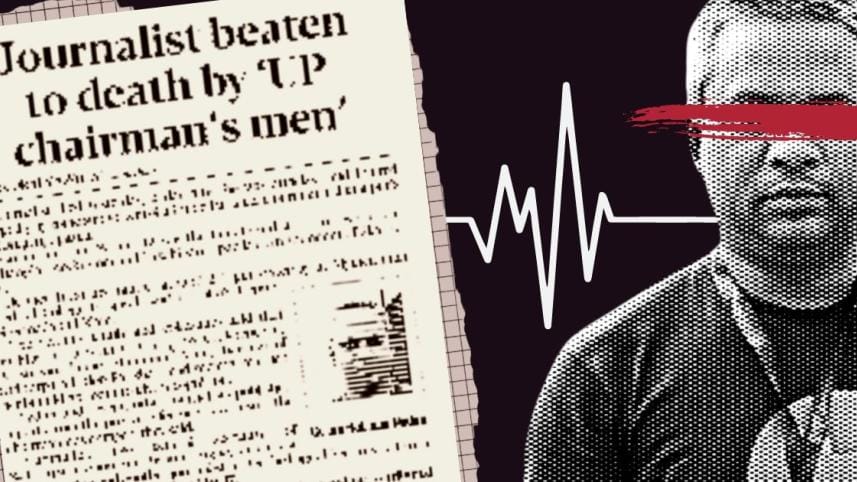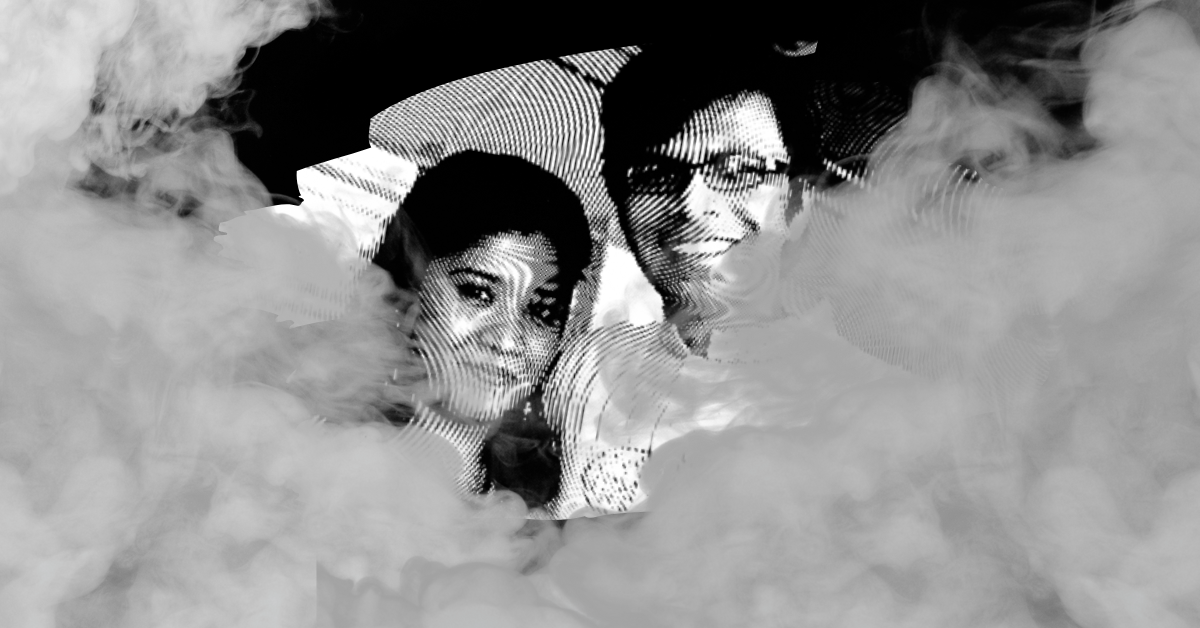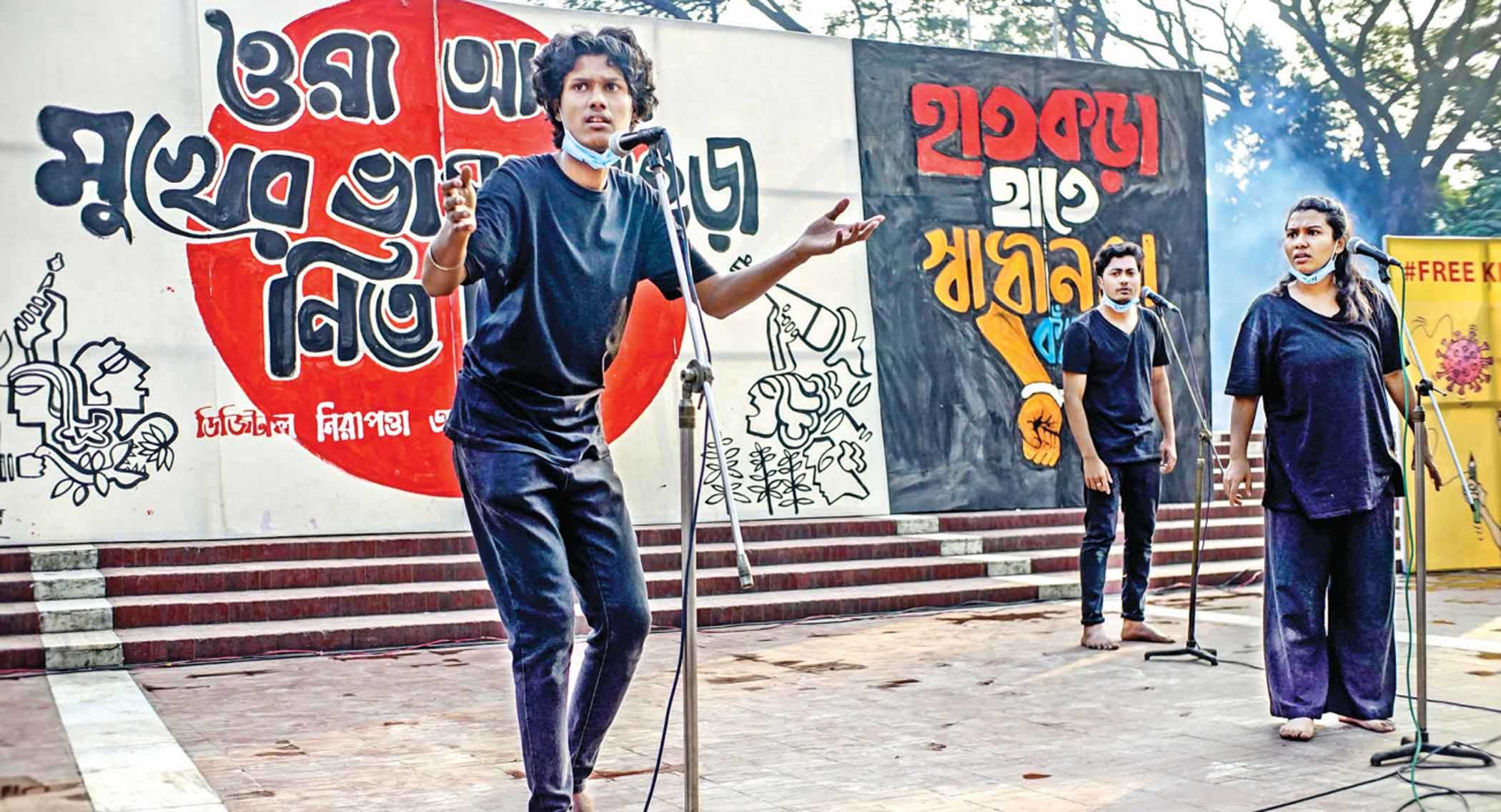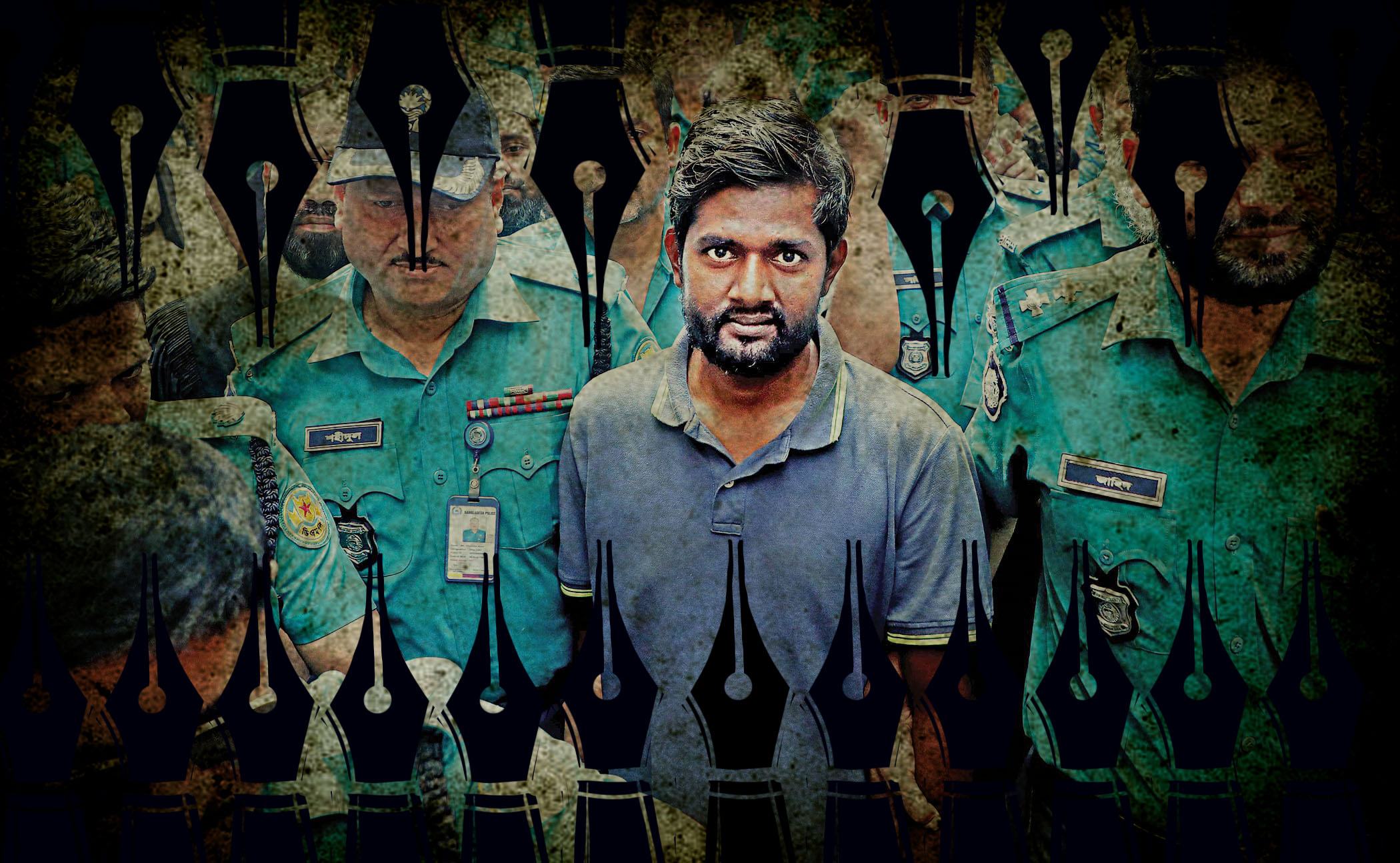When even judicial exoneration can’t keep journalists safe

Another day, another attack on the press in Bangladesh. Unfortunately, this latest attack was brutal and the target was a journalist working far away from Dhaka, the capital, which meant he had little or no protection and institutional support for doing the most difficult job of holding the powerful accountable. The horrific death that Golam Rabbani Nadim met with last week in Jamalpur's Bakshiganj upazila was the result of merciless beating by some musclemen allegedly on the orders of the local union parishad chairman, Mahmudul Alam.
Nadim was attacked the very day that he learnt that a court had exonerated him from defamation charges brought under the most dreaded Digital Security Act (DSA) by Mahmudul Alam for publishing a story about the latter's alleged bigamy. In many conservative societies, bigamy is considered a crime – or at the least moral degradation. UP chairmen are entrusted with the responsibility of issuing character certificates to residents within their jurisdictions as and when they are required. Mahmudul is also the general secretary of Awami League's Sadhurpara union unit in Jamalpur, for which he enjoys political clout over local administration.
Who could have thought that exoneration from the DSA charges would ultimately exonerate Nadim from journalism, a profession he loved and was dedicated to? As most of the mofussil correspondents get very little financial compensation from their employers, they need to top up their income by taking jobs in two or more media houses. Nadim, too, had been working tirelessly for Bangla tabloid the Daily Manab Zamin, television channel Ekattor TV, and news portal Banglanews24.com.
A short clip of CCTV footage showing Nadim being pulled down from his motorbike and accounts given by reliable eyewitnesses make one thing clear: he was killed in an ambush that bears hallmarks of a premeditated murder. In the footage, soon after he falls off his bike, the attackers are directed to drag him out of the CCTV range, as an attacker is heard ordering, "Drag him to the dark and beat him."
It may seem a mere coincidence that just before the story of Nadim's killing came to my notice, I finished a chat with another journalist, Golam Sarwar, who made headlines for his desperate plea for his life to be spared with repeated hysterical utterances like "Please don't beat me" and "I will not make any news again," as soon as he regained consciousness after rescuers recovered him from beside a canal in Sitakunda, Chattogram. Sarwar, executive editor of local news portal ctnewsbd.com, was abducted on October 29, 2020, taken to an unknown location blindfolded, and repeatedly beaten until he was left unconscious on the canal side in Sitakunda three days later.
It seems that assaulting journalists has become quite common in the current environment, and in most cases the culprits either belong to the ruling party or get blessings from its leaders and the administration.
Though his life was spared, Sarwar's sufferings didn't end. Several attempts were made to run him over in Chattogram, and two defamation cases – one civil claim for compensation and one criminal complaint – were lodged against him. Ultimately, he fled abroad leaving his family behind, and has been struggling for survival since then by doing odd jobs.
Unfortunately, these attacks on journalists and media houses are not coincidental. While writing this article, another breaking news flashed on my laptop that said Assaduzzaman, a correspondent of Bangladesh Bulletin in Barishal's Uzirpur, had been beaten up by a local Jubo League member for reporting on the assault of a madrasa student by him. It seems that assaulting journalists has become quite common in the current environment, and in most cases the culprits either belong to the ruling party or get blessings from its leaders and the administration.
The International Press Institute (IPI) has documented at least 72 press freedom threats or violations in Bangladesh over the past year, which includes both legal and physical attacks against journalists. The IPI says "its monitoring shows that a majority of these incidents and violations were committed by state authorities, which include law enforcement and judicial authorities, precisely the public officials and institutions that are responsible for safeguarding fundamental human rights and the rule of law." There's a common perception that attacking journalists in Bangladesh is not a crime and it doesn't risk any judicial consequence. Families of journalists killed rarely get justice. A glaring example is the investigating agencies' failure to conclude an investigation into the double murder of journalist couple Sagar Sarowar and Meherun Runi in more than 11 years.
The global impunity index for crimes against journalists, produced by the Committee to Protect Journalists (CPJ), a leading press rights group that compiles records on prosecuting the murderers of journalists, regularly placed Bangladesh among the worst 10 nations for free press until 2021. Though Bangladesh dropped from Top 10 in 2022 for the first time since the CPJ started the index in 2008, it said the fall "does not mean that the press freedom or journalist safety environment has improved." It added that the single notch drop was due to the numbers of unsolved murders in the index period being less than five, which was a requirement for inclusion in the report.
Physical attacks on journalists, random misuse of the DSA, and threats in the form of unofficial advisories to media houses have seriously damaged press freedom in Bangladesh. Despite admission by our ministers of DSA misuse to silence criticism, the government continues to refuse suspension of this much discredited and criticised law as prescribed by the UN human rights chief. The law minister's fresh promise that the DSA would be amended in September, sans two most crucial provisions that the UN experts have flagged for abolition, is being viewed by many, including Western diplomats, as an attempt to keep tighter control on the media for taking propaganda advantage in the run-up to the national election.
The killing of Golam Rabbani Nadim after his exoneration from the DSA clasp and the forced exile of Golam Sarwar ironically show that until and unless democracy is restored in the country, there won't be any accountability and press freedom. Even self-censorship and judicial exoneration may not be enough to ensure physical safety of journalists.
Kamal Ahmed is an independent journalist. His Twitter handle is @ahmedka1




 For all latest news, follow The Daily Star's Google News channel.
For all latest news, follow The Daily Star's Google News channel. 



Comments